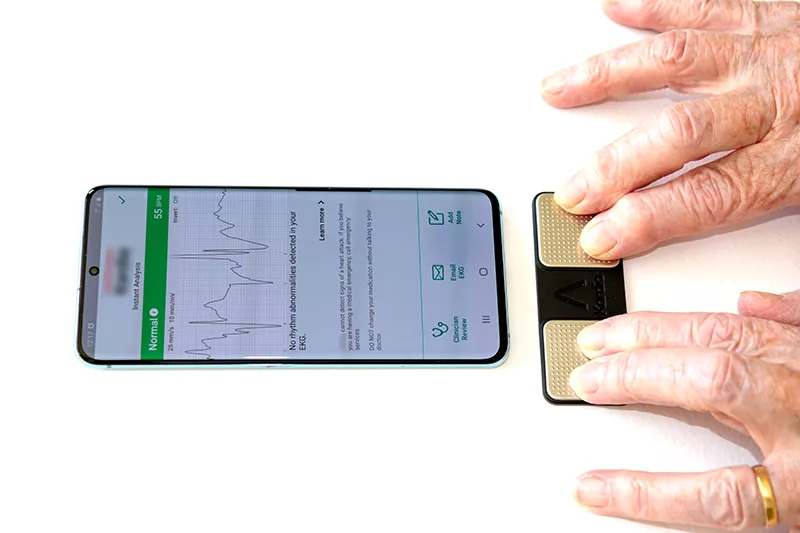
Electrocardiogram (known as EKG or ECG) monitors that you can use at home may be reliable in some situations, but this depends on the device and how often it is used. EKG machines are made to record the heart’s electrical activity over a certain amount of time, usually between a few seconds and a few minutes. These devices can tell you a lot about the heart’s beat and rate, as well as help you discover certain issues.
Here’s how home EKG monitors work and what they measure:
- Electrical Activity of the Heart: Electrodes pick up the electrical signs that the heart sends when it tightens and rests.
- Heart Rhythm: It is possible to diagnose arrhythmias and other cardiac rhythm problems by analyzing the electrocardiogram for abnormalities, such as missing or additional beats.
- Heart Rate: The heart rate, or the frequency of heartbeats per minute, is another parameter that electrocardiograms capture. Any irregularities, such as a high or slow heart rate, may be better detected with this data, which can also help evaluate the heart’s overall performance.
- Monitoring of Heart Health: People may keep tabs on their heart’s activity over time using some home EKG monitors that are built for long-term monitoring. People whose hearts are already damaged or who are at high risk of developing cardiac issues can benefit greatly from this.
Keep in mind that home EKG monitors are great for keeping tabs on your heart health, but they shouldn’t be used as a replacement for guidance and diagnosis from a doctor. If you need a more accurate electrocardiogram reading, it is preferable that your physician’s professional EKG monitor be used, as there are more electrodes used, generally on the chest, arms, and legs, to measure the electrical activity of the heart. If you need continuous monitoring of your heart, it’s best to request Mobile Cardiac Telemetry (MCT). This method involves continuous monitoring of a patient’s heart rhythm and other cardiac parameters over an extended period of time, typically ranging from days to weeks. It is often prescribed for patients who experience infrequent or intermittent symptoms that are difficult to capture with traditional ECG or EKG monitoring methods.
If you are having any of the following symptoms, or if you are concerned about the health of your heart, have a conversation with a medical professional as soon as possible: difficulty breathing, fainting, dizziness, or chest tightness. In addition, physicians may recommend more advanced monitoring equipment or regular electrocardiograms performed in a clinical setting for patients who have particular cardiac disorders or risk factors.



